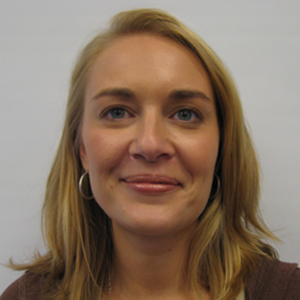Consider a career as a medical science liaison
If you’re looking to transition into industry, you may want to consider a career as a medical science liaison. It’s important to point out that this is not a sales job. MSLs play an integral role as part of the medical affairs team to serve as a subject matter expert within a specific therapeutic area (e.g., cancer biology, autoimmune diseases). They educate internal (e.g., sales and marketing) and external (e.g., physicians) stakeholders on the most updated scientific and clinical data and best use of products (e.g., drug treatment, medical device), gather pertinent clinical insights from healthcare practitioners to inform product needs, and establish relationships with key opinion leaders across the field.
There is a growing trend among pharmaceutical, biotechnology and medical-device companies to create MSL roles in order to engage key stakeholders earlier on in the product life cycle. For example, through a quick job search, I found a single biopharmaceutical company with 54 open MSL listings. Additionally, reported average base salaries for an MSL range from $121K on PayScale to $170K on ExploreHealthCareers.org. (Not to say that money is the most important factor, but it’s definitely a nice perk.) The MSL job also affords a flexible work schedule with remote working opportunities but does involve lots of traveling (e.g., physician office visits, conferences). Overall, you get paid to read and talk about science every day (minus the bench work).
As far as qualifications, most MSLs hold a terminal medical or science degree (i.e., Ph.D., M.D. or Pharm.D.) and have significant clinical or research experience within the specific therapeutic area. However, this isn’t to say that nonterminal degree holders are excluded, but it will require you to have more extensive experience relevant to the key therapeutic area that is being hired for. Of course, an MSL must have demonstrated technical and science communication skills to analyze and communicate complex scientific information to a wide range of audiences.
To get started learning more about the MSL career route, it’s essential to really understand what the job entails and key terminology (e.g., KOLs) associated with this field. You can do so by reviewing job descriptions and reaching out to conduct informational interviews with MSLs. Also, you’ll want to ensure that your C.V. reflects your desired career goal as an MSL with emphasis on therapeutic areas of expertise and relevant science communications experience. This week, we feature a collection of resources to help you research more about the MSL career path and where to find open job postings.
MSL career resources
- myIDP by Science Careers, an online career-planning tool, contains a section with relevant resources on the MSL career route. (Note: You will have to create a free myIDP account to access this information. See the “Sales and marketing of science-related products” career path in the resources tab under “Read about careers” to find the MSL resources. And, see this series of articles about the myIDP to learn more about how to effectively use the application.)
- The Interactive Simulation Exercises for Career Transitions website contains a number of practical job-simulation exercises for science careers outside academia. In the career field of “support of science products”, there is an exercise related to the MSL career path in providing scientific information to healthcare professionals, along with some background info on the MSL role and related resources.
- Here are a few other relevant articles with practical advice on how to transition into an MSL job.
- How to get a medical science liaison job (ProClinical)
- How to know if a medical science liaison job is right for you (Cheeky Scientist)
- The changing landscape of pharma: a new career route for Ph.D.s? (Naturejobs)
Industry job boards
Below is a list of industry-specific job boards where I have seen MSL jobs advertised. In addition to searching for “medical science liaison”, these position titles may include combinations of keywords (e.g., medical, clinical, education and/or science) with “liaison”. There also are related positions (e.g., scientific affairs manager) within such companies that may be of interest to you. From the job postings, be sure to get familiar with MSL job requirements and qualifications to guide your career-planning activities moving forward.
Also, I have seen many MSL positions listed in the “Jobs” section on LinkedIn. While I’m personally not a big fan of LinkedIn for job searches for a number of reasons (e.g., frequently outdated postings), it can give you an idea of who is hiring, and, more importantly, see who in your network may work at these companies. Also, many industry recruiters use LinkedIn for initial candidate searches, so be sure to keep an updated profile that reflects the qualifications needed for an MSL position and using relevant keywords for this career field.
Enjoy reading ASBMB Today?
Become a member to receive the print edition four times a year and the digital edition monthly.
Learn moreFeatured jobs
from the ASBMB career center
Get the latest from ASBMB Today
Enter your email address, and we’ll send you a weekly email with recent articles, interviews and more.
Latest in Careers
Careers highlights or most popular articles

Cooking up science engagement, a fermentation experiment
By blending hands-on cooking with scientific experimentation, a study from a team at North Carolina State University demonstrates how culinary creation can spark scientific discovery and deepen public engagement with researchers.

Upcoming opportunities
ASBMB's PROLAB award helps graduate students and postdoctoral fellows spend up to six months in U.S. or Canadian labs.

From humble beginnings to unlocking lysosomal secrets
Monther Abu–Remaileh will receive the ASBMB’s 2026 Walter A. Shaw Young Investigator Award in Lipid Research at the ASBMB Annual Meeting, March 7-10 in Washington, D.C.

Chemistry meets biology to thwart parasites
Margaret Phillips will receive the Alice and C. C. Wang Award in Molecular Parasitology at the ASBMB Annual Meeting, March 7-10 in Washington, D.C.

Decoding how bacteria flip host’s molecular switches
Kim Orth will receive the Earl and Thressa Stadtman Distinguished Scientists Award at the ASBMB Annual Meeting, March 7–10, just outside of Washington, D.C.

Defining JNKs: Targets for drug discovery
Roger Davis will receive the Bert and Natalie Vallee Award in Biomedical Science at the ASBMB Annual Meeting, March 7–10, just outside of Washington, D.C.

